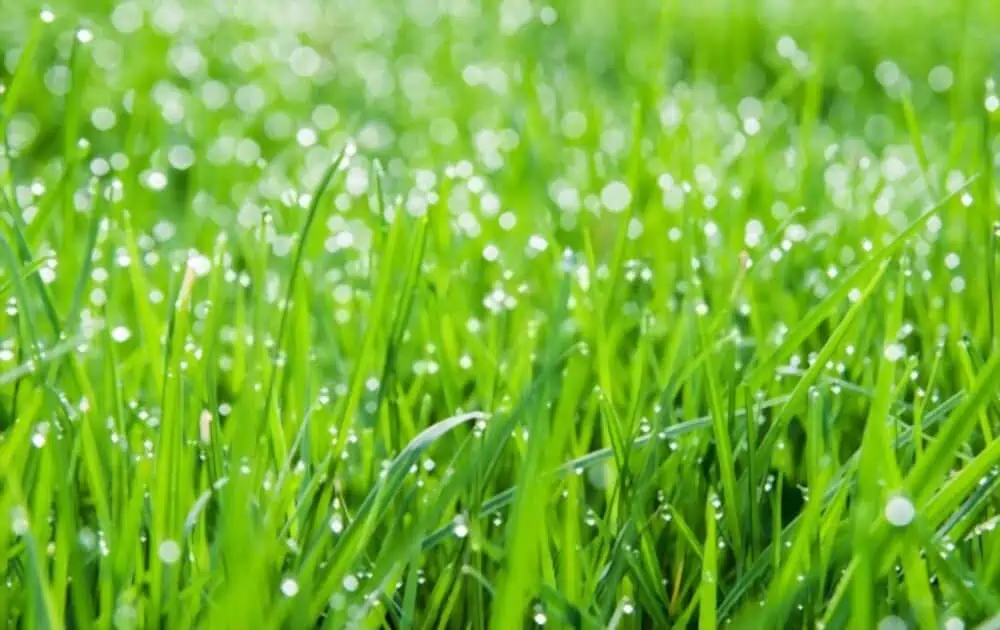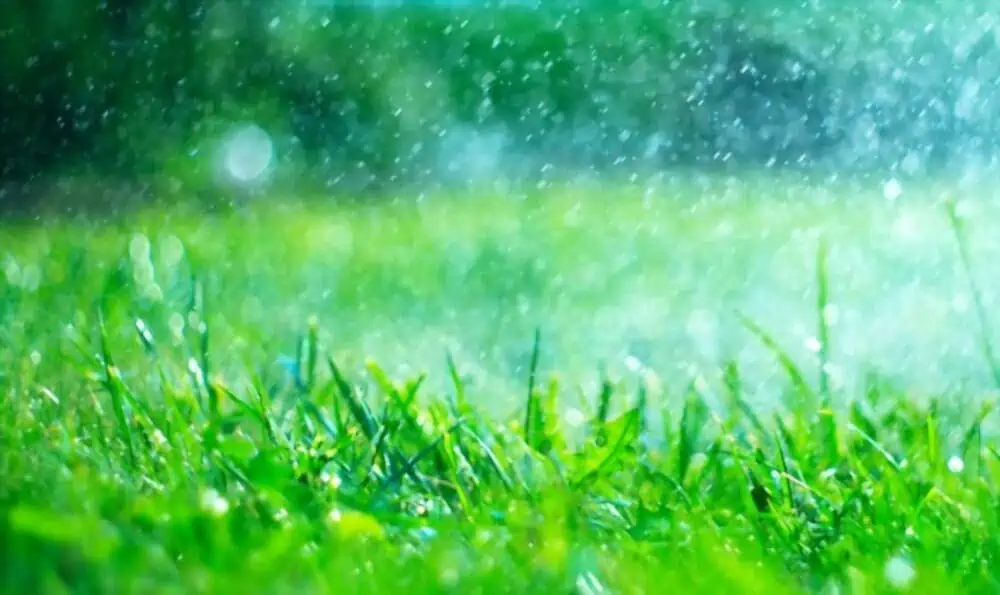Dry grass is excellent for a variety of reasons. None is so important than after rainfall so that you can adequately mow the lawn to desired heights. You’ll know that the grass is dry when you look at the ground and the grass blades.
In many cases, the grass appears damp like the ground, and water droplets are visibly clinging to the blades. However, other days aren’t so explicit with the details, leaving you wondering whether the grass is wet or dry. This article helps you understand how long it takes for grass to dry after it rains.
How Long Will It Take Grass to Dry After Rain?
There’s no universal answer to this question. Instead, many factors, such as temperature, wind speed, and humidity, determine how long it takes. However, some experts say grass typically takes some hours or a few days to dry after rainfall.
The factors to watch out for include the following:
Your Location
Whether you’re staying in a hot or cool region, your location affects how saturated your grass becomes. If your home is exposed to sunlight, expect your lawn to dry out faster. However, a place with many inches of rainfall means more hours or days before grass dries.
Rain Duration
Sometimes, rainfall can go on for many hours at a stretch. The longer it falls, the slower your grass takes to dry off. Conversely, if the rains fall for minutes or several hours, you can expect the grass to take less time to get dry.
The Intensity of the Rain
Rainfall can get so intense and, in some instances, gets accompanied by sleet. With such intensity, your grass isn’t getting dry any time soon. Additionally, the ground will be much soaker after heavy rainfall.

The Weather After
It’s a whole new scenario when the rain stops. That’s because the weather can encourage dampness or see your grass dry faster, perhaps with strong winds. Whatever the case, rainfall occurs at different times of the year. As a result, the prevalent weather condition will determine whether your grass dries quickly.
Spring Rain Showers
Spring rain showers are expected, with many US states experiencing them. Because of the moderate temperature and frequency of the rain, your grass will take longer to dry. Sometimes, the rain can take one to three days for the ground to dry out entirely during the spring.
Further, if there were past rain showers, your lawn would be wet, which may increase drying time. What’s more, ongoing showers at regular intervals will prevent your grass from drying out completely. One positive about spring rainfall is that it’s an excellent time to plant grass.
Showers on Sunny Days
Yes, showers can occur on sunny days, too. Even though it’s less likely to happen, rains on sunny days can affect the drying time of your grass. However, sunny showers are generally short, less intense, and infrequent. That means your grass is likely to dry out entirely in some hours or less than a day.
Freezing Rain
It rains in winter, but expect some snow, sleet, hailstones, or freezing rain. The ground can get deeply soaked depending on the temperature, leaving the grass wet for days or weeks. If the rain is cold enough, the soil will freeze.
Since it’s winter season, you don’t need to mow your grass, thanks to the cold and freezing conditions. Moreover, grass only grows a little in such conditions. Whether the grass is dry or not won’t matter.
Should You Mow After it Rains?
Generally, you can cut grass after it rains, especially light rains. However, it shouldn’t be immediately after rainfall as that could lead to the following problems:
Poor Cuts
Imagine going over your lawn and seeing results you’re not pleased with. That’s what happens when you mow wet grass after it rains. To achieve a clean, healthy cut, grass must stand up straight as the blade slices through it rather than bent over.
If the grass is wet, the water weighs it down, making it limp and difficult to stand straight. As a result, the mower blades badly rip through the grass. In addition, some of the grass may hang lower towards the ground than others, making the mower blade miss them altogether.
Fungal Lawn Diseases
With the bad tears in the blades of your grass, your lawn is more susceptible to infection from fungal diseases. Fungi enjoy a field day in moist conditions, and torn grasses and lingering water present the perfect scenes for them. Such fungi lawn diseases include brown patches, anthracnose, and leaf spot.

Compacted Soil
With your grass wet, the soil is mostly just as moist. When you mow a heavy mower across the wet grass and soil, it causes the soil to compact. As a result, it’s difficult for oxygen to reach the roots. Also, the mower’s wheels can cause ugly ruts and holes in wet soil.
Grass Clumps
Under normal conditions, experts advocate leaving grass clippings behind on the lawn. However, cutting wet grass hardly adds any value to your lawn. Instead, the wet grass tends to clump.
With large clumps of wet grass left by your lawnmower, proper airflow, water, and sunlight have trouble reaching the living grass.
Damage to Lawnmower
Lawnmowers are expensive. Even push mowers will cost some money to buy and maintain. So why should you do anything to compromise your investment?
Wet grass clogs your mower blades, slowing them down and making the engine work twice as hard to turn them. For example, electric mowers have less torque than gas mowers, leaving them unable to cut through wet grass. Moreover, damp grass often sticks to the underside of the mower.
Conclusion
It takes one to two days for grass to dry after rainfall. However, there’s no precise time, number of hours, or days when the grass dries after rains. Thankfully, you’ve come across the factors that determine how long it takes for grass to dry after it rains, including the duration of the rain and the weather after.
Knowing this, it’s best to avoid mowing immediately after rainfall. Allow the grass to dry to achieve better cuts and prevent issues with your lawn and mower.






